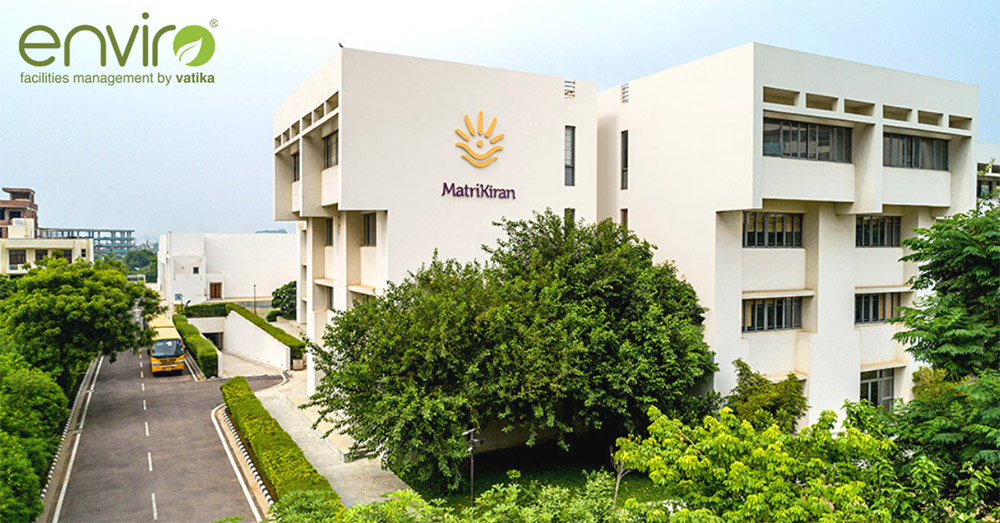Schools and universities are much much more than passive structures which provide education. Rather, they are important elements of the learning process for students. The quality of the physical environment within which a child studies is of paramount importance and dictates so much of their experience, along with the teaching staff and other community members. Infact, studies have shown that well-maintained school buildings can help increase teaching time and reduce teacher turnover rates by almost 25%.
An ideal physical environment is well-lit, sufficiently ventilated, safe, accessible, and aesthetically pleasing. It’s fair to assume that such an environment can allow all those present in the building to feel a sense of ownership, security, and even a degree of personalization. This can range from setting up creative seating arrangements, decorating common areas and classrooms and even dictate some of the teaching methods adopted by educators.
It is important to keep in mind that the facilities in a school are not only restricted to the physical building but also, essential elements such as electricity, plumbing, security, telecommunications, and fire safety systems. Furthermore, the athletic fields and playgrounds that are highly favoured by students across all age groups require thorough attention and upkeep throughout the year. Here’s a glimpse at the kind of role an integrated facility management company can play in educational institutes-
1. Maintaining buildings and premises
The upkeep of school buildings is a multi-pronged process. Generally, electrical maintenance for lights, air conditioning, fans, and elevators requires constant monitoring. Likewise, a close check also needs to be kept on water supply and quality, plumbing, and gas in different parts of the premises.
This can be a day-to-day job but planned preventive maintenance is a considerable help in such situations. Regular check-ups, surveying equipment, and evaluating their functioning can be made seamless with the help of a planned approach to facility management. Most importantly, this type of maintenance can extend the use of school buildings and related equipment.
2. Health and Well-being
The overall health of the student body and teaching staff is of paramount importance. In the event that any factor within school premises is the cause behind the deterioration of mental or physical health, the school administration will encounter a major storm of complaints from concerned family members.
Poor ventilation, along with untreated water or irregular waste collection can be the root causes of widespread disease and infection. In order to avoid any such complications, facility managers often work collaboratively with school administrators to monitor repairs, undertake risk assessments, and check HVAC systems, water treatment, and waste disposal plants. This goes a long way to ensure a healthy environment on campus.
3. Emergency Protocols
It never hurts to be prepared for the worst-case scenario and with the responsibility of an entire student body and staff, schools must be vigilant about this. Emergency situations like fires, earthquakes, and power cuts usually occur unannounced.
In this regard, facility management companies can help plan out regular risk assessment processes. These usually range from checking fire extinguishers, the functionality of fire hoses and alarms, and monitoring circuit boards or backup power supplies. Ofcourse, the school administration and teaching staff play an important role here by conducting regular fire drills to test emergency systems and student preparedness.
4. Security
Creating a secure learning environment begins with ensuring the safety of everyone within the school premises. Facility management companies can play an important role by providing security services to educational institutes. Most facility management companies, for instance, offer installation, repair, and maintenance services for CCTV cameras around school campuses. It also provides gate barrier systems and professional security guards who are responsible for patrolling campuses. Such amenities are especially helpful for some of the larger campuses.
Other equally important systems include biometric or code-based entry systems for the teaching staff, to prevent the entry of unauthorized people from entering the premises. The Visitor Management System (VMS) popularly installed in most school buildings prevents trespassing.
5. Pre-planned maintenance
Maintenance with a regular schedule is the best fit for large buildings like schools and universities. Pre-planned or planned preventive maintenance allows inspections to occur which may be scheduled daily, monthly or annually.
These integrated facility management services can include daily cleaning work, tending to grounds and landscaping by gardeners, and even more long-term maintenance such as repainting buildings or fixing broken furniture.
Using facility management software in schools is a digitalized solution for more seamless maintenance. It can substantially help reduce the spending of school budgets on maintenance activities. It can also help educational institutes meet their sustainability commitments by adopting cleaner electricity sources and cutting costs on resources like energy and gas. This can usually be supplemented with the use of solar panels, which many facility management companies offer to install and maintain. Overall, software for facility services can significantly help extend the lifetime value of school buildings.
If performed well, facility management can contribute positively to the culture of schools, boost teaching environments, and support every student’s educational journey.





 WhatsApp Business +91 88000 09776
WhatsApp Business +91 88000 09776
 CSC
CSC  WhatsApp Business
WhatsApp Business 